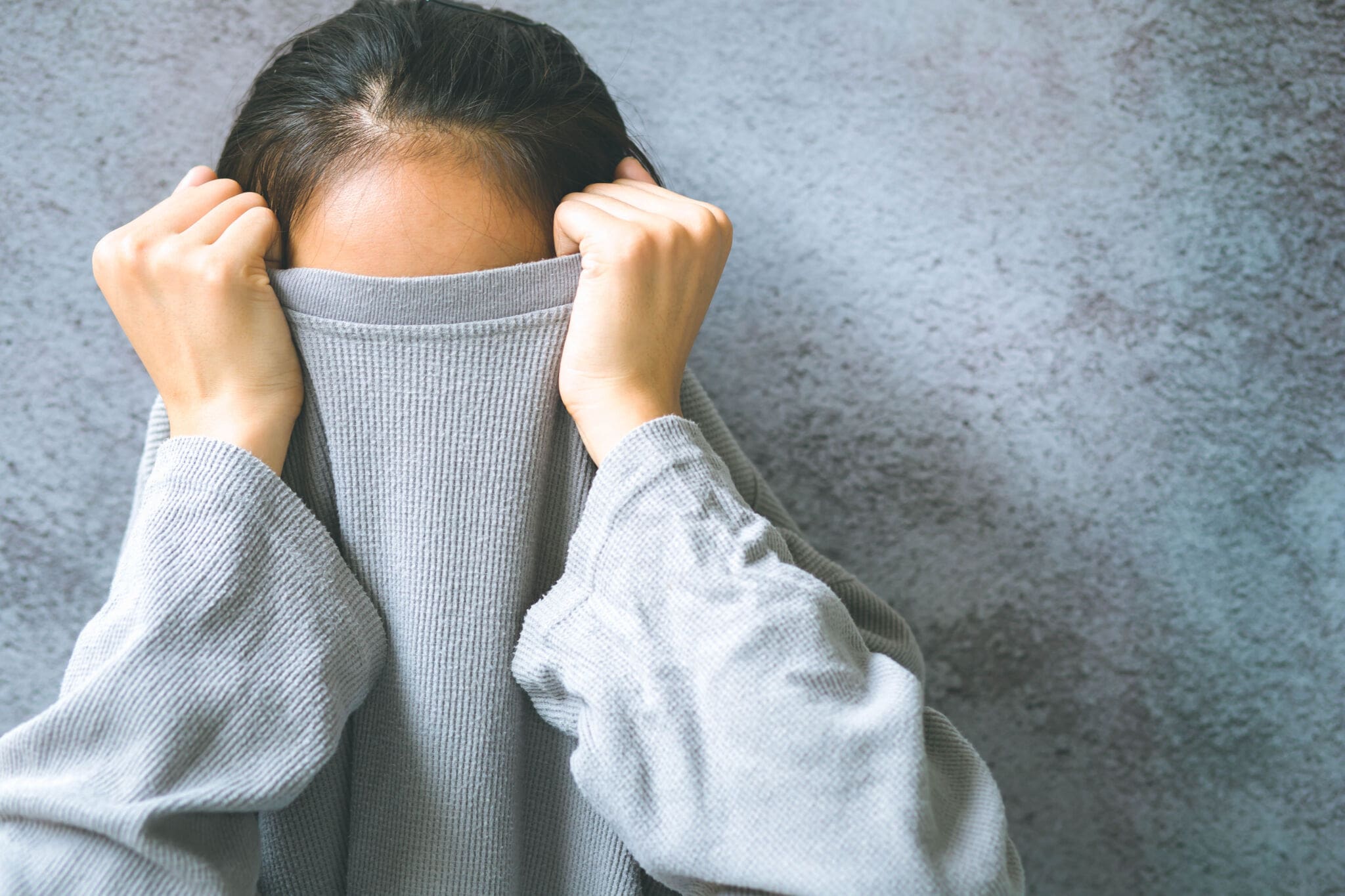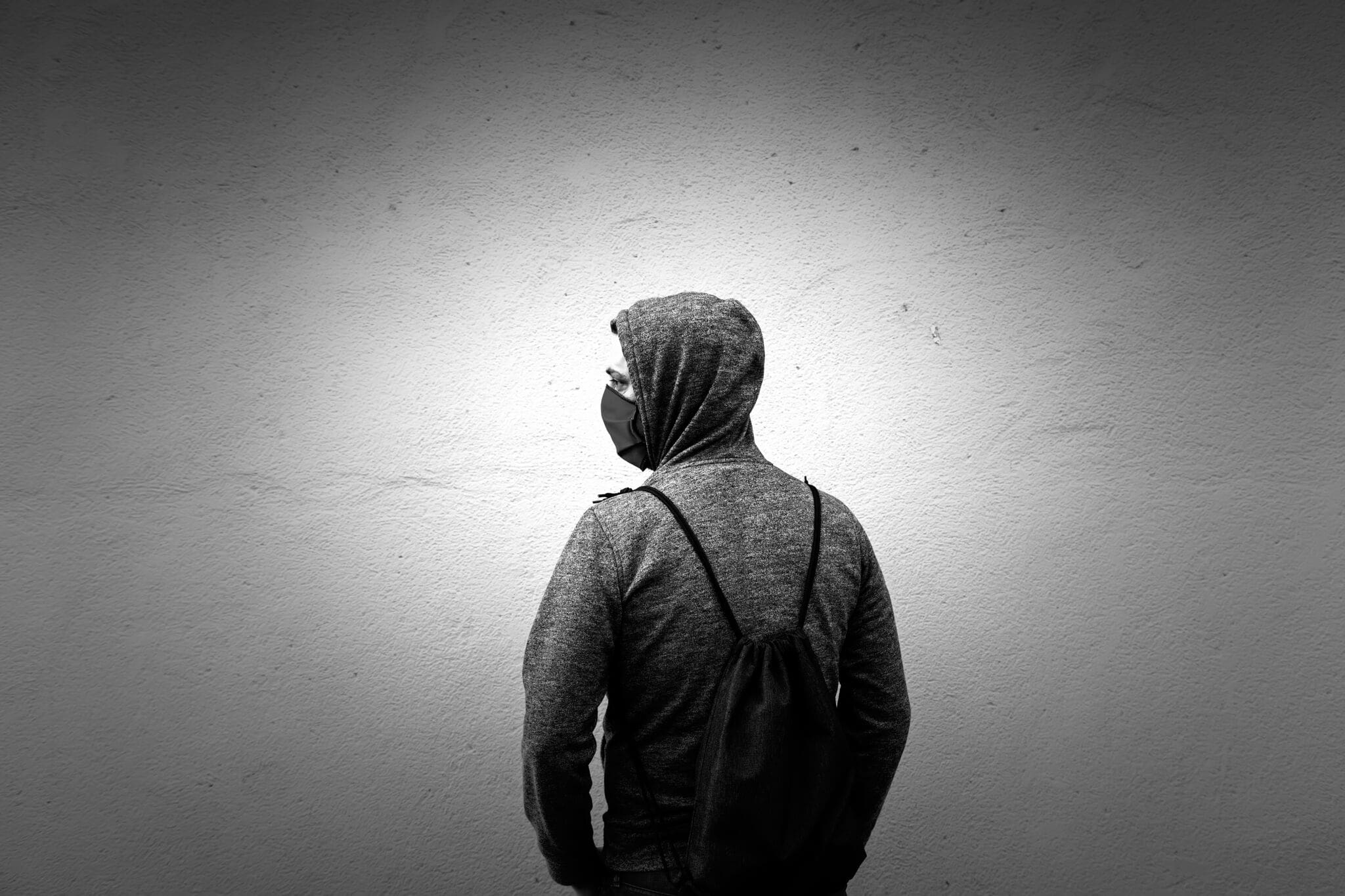In this article
What is OCD?
Obsessive compulsive disorder (OCD) is a mental health condition that is thought to affect around three quarters of a million people in the UK.
People with OCD feel compelled to think certain thoughts and perform certain actions. OCD can be overwhelming and may have a significant, negative impact on a person’s daily life. It affects both men and women and can begin in early childhood, although the onset of OCD is most common during adolescence or early adulthood.
Types of OCD
There are many different types of OCD that manifest in various ways, however, according to the charity OCD UK most people experience OCD that falls into one of these broad categories:
- Checking
- Contamination/ mental contamination
- Symmetry and ordering
- Ruminations/ intrusive thoughts
- Hoarding

Checking
The need to check is the compulsion and the obsessive fear is usually about potential harm or feeling responsible for preventing harm.
Common compulsions and thoughts related to checking include:
- The need for reassurance – for example checking a loved one is okay due to a fear of them being harmed or obsessively checking online or watching the news due to worry over a catastrophic event. Some people begin to obsess over their partner no longer loving them or a friend no longer being their friend and will repeatedly check-in to seek reassurance from them.
- Worrying about illness – people with OCD may panic that mild symptoms will grow into something major. They may repeatedly search online for information or make visits to the doctor. Some people worry that they already have an illness that will become serious and they will die. Others worry that they have passed illness onto others, or that they will in the future.
- Door locks and windows – simply checking locks once or twice is rarely enough. People may even feel the need to leave work or school to go back and check a door is locked ‘just in case’ despite having already checked multiple times. People with OCD worry not only about the consequences of leaving the door unlocked (ie. a break in) but also the guilt and responsibility they would feel for not having prevented it.
- Electrical equipment – common electrical equipment such as straighteners or computers may need to be checked repeatedly before bed or leaving the house. Electrical outlets may also need to be checked to ensure that they are off. The primary worry is that a fire will causes the death of loved ones and pets or the destruction of prized possessions. Secondary fear, as with door locking, revolves around guilt and responsibility and a feeling of needing to prevent a fire.
Contamination
People with OCD may have an irrational fear or being dirty or having been exposed to disease or infection. They may worry about the consequences of this for themselves, such as getting ill, or that a loved one may get sick as a result. This fear can cause compulsive behaviours to wash, clean or avoid.
Common worries and compulsions associated with contamination include:
- Fear of being exposed to germs in public places such as public toilets, handrails on staircases, doorknobs or touch screens
- Fear about eating in restaurants
- Worrying about common items that need to be touched on a daily basis such as keys, letters or money being dirty
- Fear of hospitals, dentists or GP surgeries
- Disliking crowds of people or busy places
- Not wanting to be touched, for example shaking hands or hugging, due to potential contamination
- Fear of bringing germs from outside into the home
A fear of contamination often leads to avoidant behaviour such as:
- Not going out to eat
- Avoiding hugs or handshakes
- Not touching items such as keys, money or mobile phones
- Not wanting to leave the house
It often also leads to obsessive, repeated washing and hand washing that can severely impact skin health, causing redness, soreness and itching (ironically increasing the chance of infection). Some people with OCD will wipe down items, such as mobile phones or chargers, constantly. Repeated cleaning of electrical items can lead to damage, meaning that they have to be frequently repaired or replaced.
A common stereotype of a person with OCD is someone that meticulously cleans their home, although not everyone with OCD behaves like that some people do, especially if they have a fear of contamination. They may clean well beyond what is considered a normal (or even a deep) clean, only stopping when they truly ‘feel’ their space is clean, regardless of how it looks or how many cleaning products they have used.
Mental contamination
Mental contamination is an emerging area of research. Similar to physical contamination, it causes a person to feel unclean and engage in obsessive rituals to cleanse themselves. Unlike with physical contamination, the contaminant is human and the feelings of contamination are evoked when a person is treated poorly, abused or spoken to in a negative way, making them literally feel as if they are now somehow dirty.
Avoidant behaviours and the amount of time spent on washing and cleaning can seriously interfere with a person’s education, career and personal life.
OCD is a complex condition and the themes and symptoms of OCD can also overlap between these categories. Some people find it helpful to label their OCD whilst other do not, especially if their symptoms crossover significantly between the categories.
Symmetry and ordering
Some people with OCD have a compulsion to ensure that everything is grouped or lined up in a way that they feel is ‘just right’. Failing to do this, they think, will result in something negative feelings or something bad happening. Symmetry and ordering are often associated with magical thinking.
This may manifest as:
- Having everything neat and spotless in the home
- Lining items such as books or DVDs up exactly
- Ensuring that food labels on jars and cans all face the same way
- Making sure that all pictures, paintings and wall hangings are perfectly straight
- Needing every clothing item to be neatly folded, organised and orderly
- Ordering or grouping of specific items by size, shape, colour or category
If you are affected by the need for symmetry and order, some people on the outside may envy how tidy, neat and organised your living space is. What they will not realise is how time consuming it is to get everything ‘just right’ and the overwhelming feelings that come with something being out of place.
Ruminations and intrusive thoughts
Intrusive thoughts in people with OCD are repetitive, involuntary and cause distress and upset. Some of the most common themes include:
- Intrusive thoughts about relationships – doubts about fidelity, obsessing over faults within the relationship, doubting your partners true feelings for you, questioning your sexuality, worrying that you will cheat
- Intrusive sexual thoughts – these often revolve around taboos such as fearing you may be sexually attracted to someone underage or someone you are related to. Some people may fear being attracted to the same/ opposite sex. Others fear committing sexual harm against another person.
- Intrusive violent thoughts – these are some of the most common intrusive thoughts that people have and they also illicit some of the strongest reactions of guilt and disgust. Intrusive violent thoughts include the fear of committing a violent act (especially to a loved one) and harming innocent people.
- Magical thinking – this is the fear that if you think something bad inside your head, you cause to happen in real life. Magical thinking intrusive thoughts can cause people to perform time consuming rituals to ‘stop’ something bad happening.
- Body focussed obsessions – body focussed obsessions often revolve around a fixation on normal bodily functions such as breathing, blinking or swallowing. This differs from body dysmorphia which is about feeling unattractive and is more about hyper fixation on sensations and what is happening within the body.
Ruminations are intrusive thoughts that are usually linked to deep philosophical or religious questions, such as ‘what is the meaning of life?’ or ‘what happens when we die?’.
Although some people use the term ruminations about all obsessive, intrusive thoughts, in terms of OCD ruminations are trains of thoughts that are:
- Indulged over a prolonged period of time
- Unproductive and
- Without direction
Hoarding
Although hoarding disorder is classified as a mental health condition in its own right, there is a significant relationship between hoarding and obsessive compulsive disorder.
Hoarding is the compulsion to collect or hold onto items even if they are useless, broken or excessive. Some people will hoard items due to specific worries and fears, which is a key part of OCD.
Hoarding can have a serious effect on people’s lives, as well as their health, safety and well-being. It is vital that hoarders are given the correct treatment and intervention in order to help them to overcome their compulsions. This may mean also looking for underlying symptoms of OCD and diagnosing and treating people accordingly.
Pure O OCD
Pure O or purely obsessional OCD is name sometimes given when people have OCD but only experience the intrusive thoughts but show no outward signs of compulsions or obsessive behaviours.
People who suffer from pure O will still have compulsions, but as they are not compelled to physically act out these behaviours they can be harder to see and diagnose. This does not mean that they are not present, rather they are internal or mental compulsions that are going on inside the mind.
Examples or internal or mental compulsions may include:
- Checking how you feel – for example do you still like your friend as much, are you still happy in your relationship
- Checking bodily sensations
- Checking how you feel about a thought
- Ruminating or thinking about a problem over and over again
- Reassuring yourself
- Repeating words, phrases or numbers on your head
Symptoms of OCD
The symptoms of OCD vary between people, but they usually include three main elements:
- Obsessions
- Emotions
- Compulsions
Most people with OCD experience both obsessive thoughts and compulsive behaviours, although not always in equal measure.
Obsessive thoughts
Obsessive and intrusive thoughts in people with OCD differ from the unwanted and worrying thoughts we all get from time to time, such as ‘did I lock the door?’ or ‘what if I swerved the car into traffic right now?’.
People without OCD recognise that these are just thoughts but for people with OCD they become something much more overwhelming and persistent. These intrusive thoughts turn into obsessions.
People with OCD experience a wide range of different obsessive thoughts. These may include:
- Fear of something bad happening to themselves or the people they love
- Fear of harming someone deliberately or accidentally
- Fear of being contaminated by dirt, germs or disease
- A need for symmetry and order
These thoughts are associated with OCD if they are unwanted, are causing you distress and are impacting on your quality of life
Compulsive behaviour
Compulsive behaviours can begin as a way to neutralise the obsessive thoughts, even though in reality these behaviours are either not connected in reality or are disproportionate. Examples include:
- Washing the hands over and over (sometimes to the point of making the skin sore) due to a fear of germs or being unclean
- Flicking the light switch on and off a certain number of times so that your family don’t die in a car crash
People with OCD are often able to recognise that these behaviours are irrational and make no logical sense, but they feel compelled to continue with them.
Some common examples of compulsive behaviours you may exhibit if you have OCD include:
- Obsessive cleaning
- Compulsive hand washing
- Checking – for example checking that electric outlets are switched off or that doors have been locked
- Counting
- Ordering and arranging – for example making sure all of the labels on items in the cupboard face the same way
- Asking for reassurance
- Repeating words in your head
- Thinking ‘neutralising thoughts’ to counteract the obsessive thoughts
- Avoiding people, places or situations that are triggering
- Hoarding
Repetitive actions or mental exercises performed by people with OCD to give them some temporary relief from bad thoughts, are sometimes called rituals. These rituals can help people who suffer from OCD to get a temporary feeling control and calm.

What causes OCD?
Scientists and doctors are not clear on exactly what causes OCD yet, although there are some links between developing OCD and:
- A family history of OCD – you may be at a higher risk if someone in your family has the condition. This could be due to it being a ‘learned behaviour’ that is seen as a valid coping mechanism. There may also be some kind of genetic component.
- Differences within the brain – the brains of some people with OCD have been found to have unusually high activity in certain areas of the brain, or low levels of the chemical messenger serotonin.
- Negative or important life events – life events that have a significant impact on us or cause changes in our lives such as bereavement or childbirth, can increase the risk of developing OCD. People who have suffered trauma or been abused, bullied or neglected are also at greater risk.
- Certain personality traits – people who hold themselves (and sometimes others) to very high standards or who are meticulously neat and methodical may be at greater risk of developing OCD, as are those who are unusually anxious.
- Ongoing anxiety and stress – both anxiety and stress can trigger OCD or exacerbate symptoms and make it harder to cope with.
Treatment for OCD
According to the NHS, the main treatments you will be offered for OCD are:
- Talking therapy such as cognitive behavioural therapy (CBT) to help you reframe and make sense of your thoughts and reactions to them
- Medication such as antidepressant medicine called selective serotonin reuptake inhibitors (SSRI’s)
Obsessive compulsive disorder is not a condition that can be completely cured using medication or other techniques, although it can be managed to the point it has little effect on a person’s life.
Other treatment options include:
- A combination of an antidepressant and CBT
- An alternative SSRI
- An antidepressant called clomipramine
If the available treatments have not worked, or your OCD is severe or getting worse after treatment, you may be referred to a specialist mental health service. Specialist OCD services are not available everywhere, meaning that you may be required to travel to a different area of the country to access the help that you need.
How to deal with OCD
Untreated OCD can have a seriously detrimental impact on our lives. If you are worried about intrusive thoughts or compulsive behaviours, you should make an appointment to speak to your doctor.
Initially it is important to:
- Recognise the signs and symptoms of OCD
- Reach out for help as soon as possible
- Speak honestly about how you are feeling
- Engage with treatment options
- Use self-help strategies
- Don’t despair and remain hopeful
- Keep going
Managing OCD is an ongoing process that often requires a lifelong commitment to recovery and management.

OCD and other conditions
People with OCD may be at a greater risk of having or developing other mental health conditions or problems. This includes:
- Depression
- Eating disorders
- Generalised anxiety disorder (GAD)
- Hoarding disorder
Depression
Depression is a common mood disorder that is characterised by feelings of persistent sadness, hopelessness and melancholy. People who are depressed often lose interest in activities that they once enjoyed and may become withdrawn and isolated.
Studies have shown a strong correlation between depression and obsessive compulsive disorder, although the exact nature of the relationship between the two is not fully understood.
The overlap between OCD and depression can be seen at a clinical level, with depressed people often experiencing symptoms that are common in OCD cases such as agitation, apprehension and worry. People with depression often get caught up in negative thought cycles and feelings of self-blame, also common themes in people with OCD.
Both antidepressants and therapy that are used to treat depression can also help with treating the symptoms of OCD.
Eating disorders
People with eating disorders develop an abnormal attitude to food which causes them to change their eating habits and behaviour.
The relationship between eating disorders (EDs) and OCD was first observed in 1939 by psychologists Palmer and Jones, who observed common personality traits that appear in both patients with ED’s and OCD. Since then, research has consistently found shared personality traits between the two disorders including perfectionism and neuroticism.
Eating disorders have the highest mortality rate amongst all mental health conditions – if you are worried that you have issues with your eating habits, you should make an appointment with your doctor asap to get help and support.
Anxiety
Obsessive compulsive disorder and anxiety share many commonalities, for example feelings of fear, worry and repetitive, negative thoughts. The two also share some common physical symptoms such as an increased heart rate and the same regions of the brain that affect anxiety also trigger OCD.
High levels of anxiety may also increase the chance of you developing OCD. Having OCD will also make you more anxious, as persistent unpleasant thoughts take their toll on the mind causing feelings of fear and paranoia.
Both anxiety and OCD can lead to you getting trapped in endless cycles of panic and negative thought responses and acting upon rituals to appease anxious thoughts can make anxiety worse.
Dealing with OCD alongside another condition can make it even more difficult to deal with. If you are struggling will your mental health, including OCD, it is important to get help and support as soon as possible for all of the issues that are affecting you. By getting the right treatment, you will improve your health and wellbeing and should start to feel more in control of your life and able to look forward to the future.






